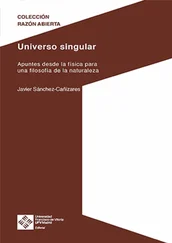Friday was a day off at the office. Most of the businesses downtown worked a half day on Friday but the lawyer, whose clients were generally Arabs, decided to keep his office closed on the Muslim holy day, not least because on Fridays the security forces tightened the ring around Jerusalem, keeping worshippers from the West Bank away from the al-Aqsa Mosque, making it that much harder for his clients to sneak into the city. The old stone office building was dark and he turned on the light and went up the stairs to the first floor. A few seconds later he heard the alarm spring to life. For a moment he was nervous because he had no clear recollection of the code, but without thinking he punched in five digits and the alarm stopped. He flipped the lights on in the office and had the feeling that he was not alone. He walked toward the conference room, opened the door hesitantly, and peered in, looking at the oval hardwood table, the couches, and the long decorative rows of law books that were never opened.
The lawyer peeked into Tarik’s office and knocked on the bathroom door. Then, just to make sure, he looked inside. He unlocked his own office and scanned the room. He checked the windows to see if they had been broken and whether the security bars were still in place. Once he was sure that he was alone, he laid his briefcase on the table and went to make himself a cup of coffee. He had been in the same office for five years and even though it had never been broken into he was sure that the first burglary was imminent. The offices and businesses in the area were frequently burglarized, and he, as an outsider, was sure he was being targeted. He’d already had to replace the Hebrew, Arabic, and English brass sign outside the building several times because his name, and later Tarik’s, too, had been spray painted over, a thick black stripe through the Arabic.
It was five thirty. Why was she not calling? He was pretty sure that this was when his son started to wake up. Had she gotten up at all when he left the house or had she slept through the whole thing? She had been tired last night. The guests had left late and she, of course, had to put the dishes in the dishwasher, tidy up the living room, and mop the kitchen floor. She must be exhausted, the lawyer told himself, looking at his watch and deciding to give her a little more time.
He opened his briefcase, took out The Kreutzer Sonata, and felt another stab of pain. He felt like an idiot waiting for her call, thinking that if only he heard some worry in her voice then everything would be all right. Nothing would be all right. Nothing would be as it was. His hand trembled as it held the note written by his wife. He reminded himself that he had to remain calm, to give her no indication, but he didn’t know how he could do it. How would he temper his rage, stifle the urge to harm her, and still plot her ruination? Because that is precisely what she had done to him, ruined his world. He had to be calm and collected, and he reminded himself that he had always been a reserved and calculating individual, the kind of strategist who plotted his each and every move.
The lawyer considered himself someone who was always prepared for the worst. He was prepared for the death of his parents, even though both were in good health. At first, as a child, the notion that they might die was awful, unbearable, until, with time, the expectation of their deaths became somewhat more tolerable and, perhaps once he became a father, even inconsequential. The lawyer went so far as to envision losing his children, preparing himself for that eventuality, too. He imagined what would happen if one of his children was struck by disease, or SIDS, or an accident at school. The thought of enduring such a thing was particularly gruesome, rather like his childhood thoughts about the loss of his parents, but he knew he had to be prepared. Of course, he had devoted some thought to the death of his wife as well, and to be perfectly honest that thought was not as painful as the other ones, the wound was of a far more tolerable variety, the kind that can be overcome, but when he screened those images in his mind, there was no escaping the image of his children weeping for their lost mother, and so, at this stage, when the loss of either parent would be a debilitating blow to the children, he hoped that they would both retain their health. That said, he had an unformed feeling, from somewhere deep inside, that once his children reached an age where the loss of their parents would not be that awful, he would consider the loss of his wife to be a desirable eventuality. Even when their relationship seemed solid he would occasionally, perhaps before sleep, imagine a brighter future without her. And now, for the first time, he was shaken by the understanding that she apparently felt likewise. Before sleep, she, too, longed for the death of her husband.
How had it come to pass that he, who prepared himself for every scenario, had not even considered the possibility that his wife might cheat on him? He’d heard innumerable stories about infidelity but had always thought that such behavior was the domain of a certain kind of woman and that it could only happen to men who were nothing like him. How naive and idiotic. The lawyer was sorry he had not heeded the advice of his sister, who had actually introduced him to his future wife, though not intentionally. He recalled how his sister had then tried to do everything in her power to scare him off, but he, like a fool, cast it all aside. Not so much because he felt an unwavering love for the woman who was to be his wife but because he was committed to the idea of marrying a woman that in no way reminded him of his sister or his mother or the rest of his highly conservative family. The lawyer wanted something different, and he thought he was smarter than everyone else.
His parents would never have sent their daughter to study at the university in Jerusalem, to sleep in the dorms without the knowledge that he, her brother, who had just finished his internship at the time, was around and could be the muhram, the first-degree relative that could safeguard and vouch for her honor. “She’s studying along with her brother in Jerusalem,” his mother would always say to relatives and neighbors. The lawyer’s sister had been wearing the hijab since high school and she wore it all through her bachelor’s degree in education. It was patently clear that she would go back to the village as soon as she graduated, and try to secure a teaching position.
During those days the lawyer would visit his sister at least once a week but he never met her roommate because his sister believed that he, an unrelated male, should not be allowed to spend time in the company of her female roommate. The lawyer first met the roommate, the woman who would be his wife, on a night when she had gone to a student party and was not supposed to be back before midnight. The lawyer had accepted his sister’s invitation to come by the dorm room with two mixed-grill sandwiches, which she loved, but the roommate came home early, just before ten. He recalled the moment: a thin girl with curly hair and a sad look in her eyes. He recalled the elegant black dress, the way it accentuated her body. He got up to leave as soon as she came in but his sister was compelled to show that she was not spending time with random men, and so, with little enthusiasm, she introduced them. “This is my brother,” she had said, before he left the room.
The lawyer, a native of the Triangle, had always wanted to wed a girl from the Galilee. The Galileans tended to think of themselves as superior to the natives of the Triangle, and the lawyer tended to agree with them. He had been painfully aware of his crude country accent and upon arrival at the university in Jerusalem he adopted the more refined, less threatening accent of the Galileans. They seemed more enlightened, more educated, better dressed, better off, the products of superior schools.
Читать дальше












